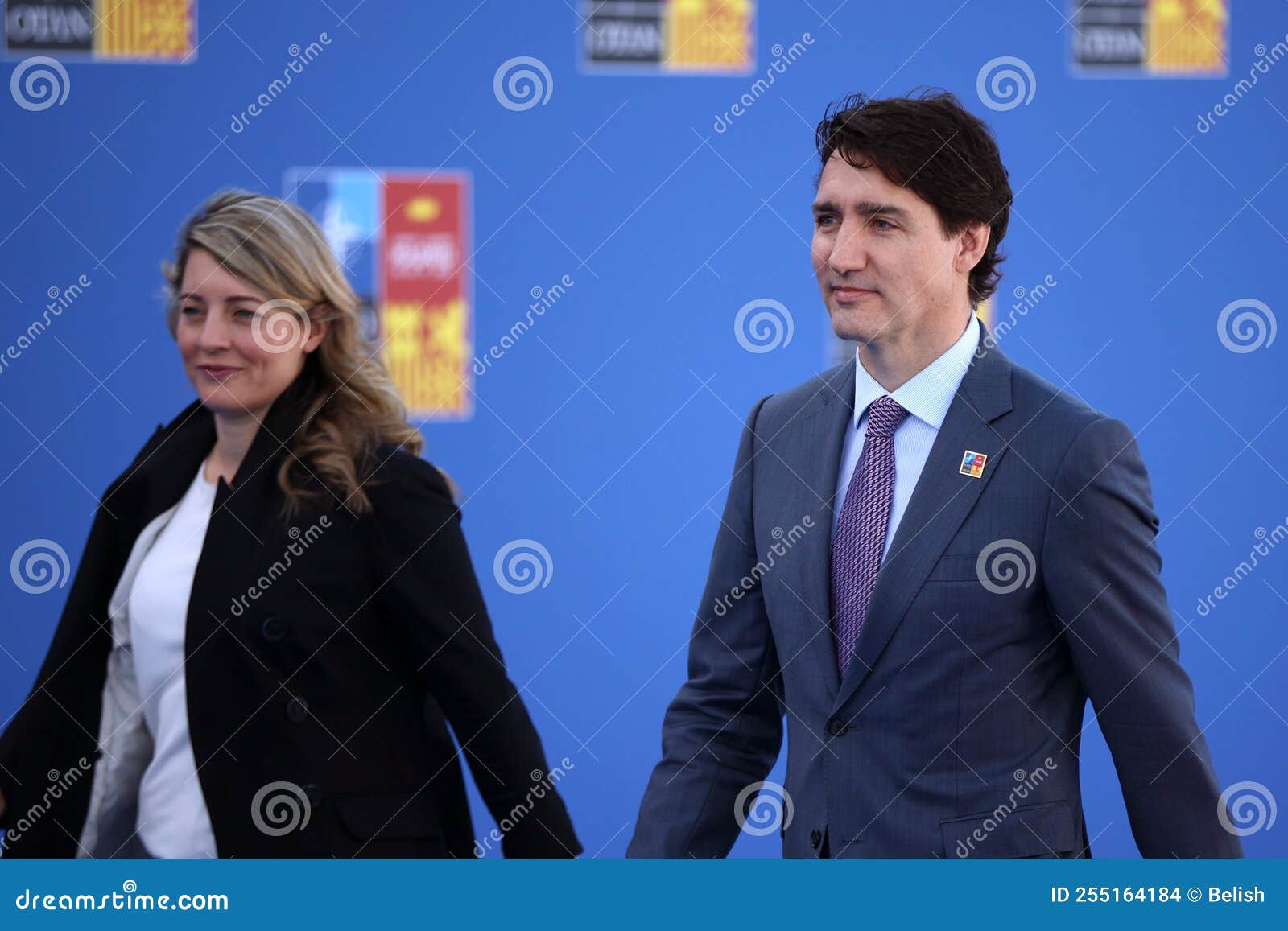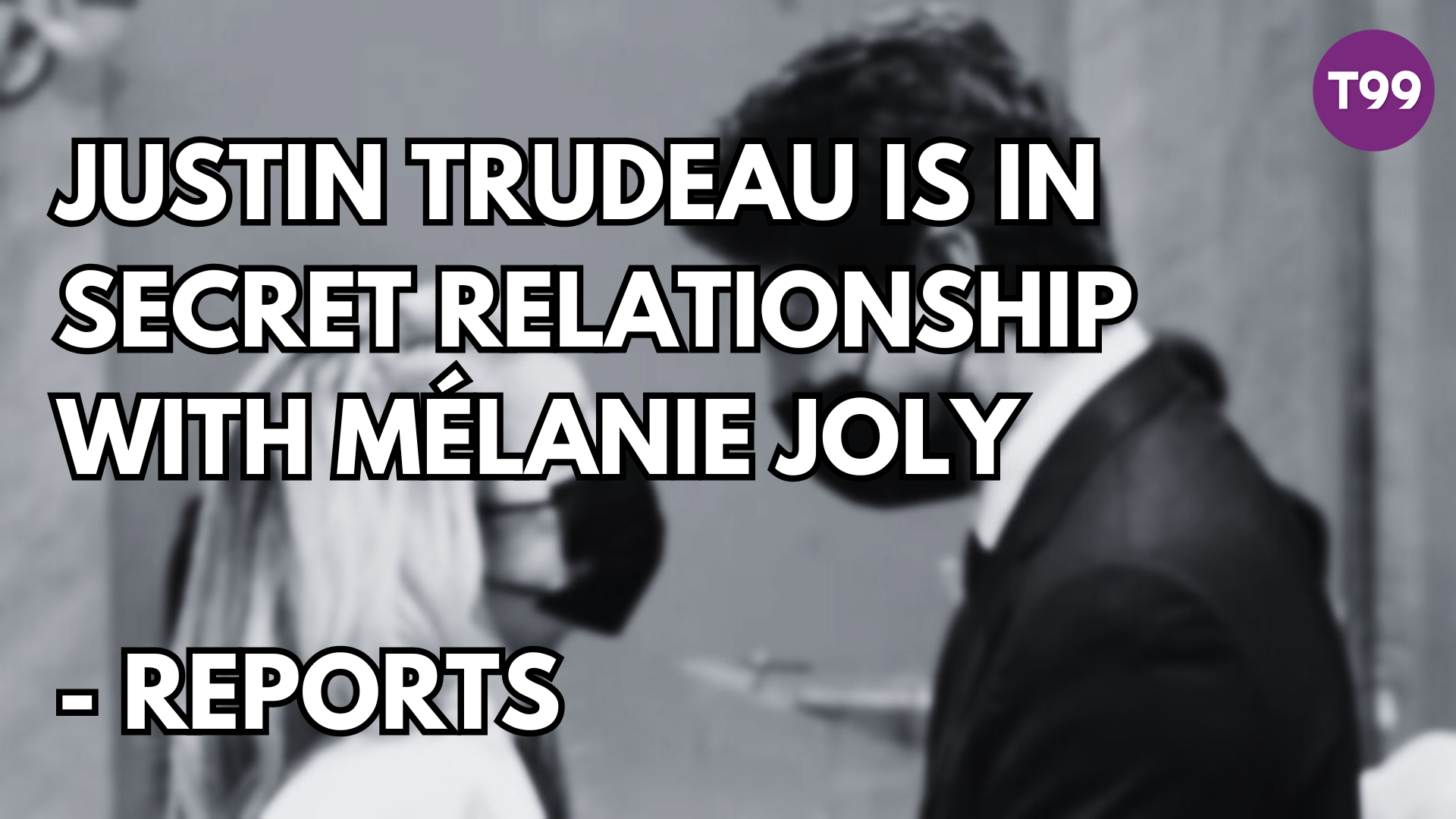Justin Trudeau and Mélanie Joly have both carved out significant roles in Canadian politics, making their relationship a topic of interest for many. As prominent figures in the Liberal Party of Canada, their interactions and professional dynamics have often been scrutinized. Whether it's their shared policy goals or their differing approaches to leadership, the relationship between these two politicians offers a fascinating glimpse into the inner workings of Canadian governance. In this article, we’ll explore their political journeys, their collaboration, and the impact they’ve had on Canada’s political landscape.
Justin Trudeau, the son of former Prime Minister Pierre Trudeau, rose to prominence as the leader of the Liberal Party and later as Canada's Prime Minister. His leadership style, often described as charismatic and inclusive, has earned him both praise and criticism. On the other hand, Mélanie Joly, a lawyer and politician, has made significant strides in her career, particularly as the Minister of Foreign Affairs. Her ability to navigate complex diplomatic challenges has solidified her position as a key player in Trudeau’s cabinet. Together, their relationship has been marked by collaboration, occasional disagreements, and a shared commitment to advancing Canada’s interests on the global stage.
Understanding the dynamics between Justin Trudeau and Mélanie Joly requires a closer look at their individual backgrounds, their roles within the Liberal Party, and their contributions to Canadian politics. From their early political careers to their current positions, their relationship has evolved over time, shaped by shared goals and differing perspectives. In this article, we’ll delve into these aspects, providing a comprehensive analysis of their professional relationship and its implications for Canada’s political future.
Read also:Mastering It Skills With Cbt Nuggets A Comprehensive Guide
Table of Contents
Biography of Justin Trudeau
Justin Trudeau, born on December 25, 1971, in Ottawa, Ontario, is the eldest son of former Canadian Prime Minister Pierre Trudeau and Margaret Trudeau. Growing up in a politically prominent family, Justin was exposed to the intricacies of governance from a young age. After completing his education at McGill University and the University of British Columbia, he embarked on a career as a teacher and later transitioned into politics.
Trudeau’s political career took off when he was elected as the Member of Parliament (MP) for the riding of Papineau in 2008. His charisma and progressive policies quickly gained him recognition within the Liberal Party. In 2013, he was elected as the leader of the Liberal Party, and in 2015, he led the party to victory, becoming Canada’s 23rd Prime Minister. Under his leadership, the Liberal Party has focused on issues such as climate change, social justice, and economic growth.
Justin Trudeau's Personal Information
| Full Name | Justin Pierre James Trudeau |
|---|---|
| Date of Birth | December 25, 1971 |
| Place of Birth | Ottawa, Ontario, Canada |
| Education | McGill University, University of British Columbia |
| Political Party | Liberal Party of Canada |
| Spouse | Sophie Grégoire Trudeau |
Biography of Mélanie Joly
Mélanie Joly, born on March 25, 1979, in Montreal, Quebec, is a prominent Canadian politician and lawyer. She grew up in a bilingual household, which helped shape her fluency in both English and French. Joly pursued her education at the Université de Montréal and later at the London School of Economics, where she earned a Master’s degree in Law. Her academic background and legal expertise have been instrumental in her political career.
Joly entered politics in 2015 when she was elected as the MP for the riding of Ahuntsic-Cartierville. Her early career in the Liberal Party saw her take on various ministerial roles, including Minister of Canadian Heritage and Minister of Economic Development. In 2021, she was appointed as Canada’s Minister of Foreign Affairs, a position that has allowed her to play a pivotal role in shaping Canada’s international relations.
Mélanie Joly's Personal Information
| Full Name | Mélanie Joly |
|---|---|
| Date of Birth | March 25, 1979 |
| Place of Birth | Montreal, Quebec, Canada |
| Education | Université de Montréal, London School of Economics |
| Political Party | Liberal Party of Canada |
| Current Position | Minister of Foreign Affairs |
Their Political Careers
Both Justin Trudeau and Mélanie Joly have had remarkable political careers, marked by significant achievements and challenges. Trudeau’s rise to the leadership of the Liberal Party and his tenure as Prime Minister have been characterized by his focus on progressive policies and inclusive governance. His ability to connect with Canadians from diverse backgrounds has been a hallmark of his leadership style.
On the other hand, Joly’s career has been defined by her versatility and adaptability. From her early days as a lawyer to her current role as Minister of Foreign Affairs, she has demonstrated a strong commitment to public service. Her appointment as Foreign Affairs Minister has placed her at the forefront of Canada’s diplomatic efforts, where she has worked closely with Trudeau to advance the country’s interests on the global stage.
Read also:Park Eunbin A Rising Star In The Kdrama Universe
Key Achievements
- Trudeau’s leadership in addressing climate change and promoting gender equality.
- Joly’s efforts in strengthening Canada’s cultural industries and international trade relations.
The Dynamics of Their Relationship
The relationship between Justin Trudeau and Mélanie Joly is rooted in their shared affiliation with the Liberal Party and their commitment to advancing Canada’s interests. As Prime Minister and Minister of Foreign Affairs, respectively, they have collaborated on numerous initiatives, from international diplomacy to domestic policy reforms.
While their relationship is largely professional, it is not without its challenges. Differences in leadership styles and policy priorities have occasionally led to disagreements. However, their ability to navigate these challenges and find common ground has been a testament to their professionalism and dedication to public service.
Shared Policy Goals
One of the key aspects of Trudeau and Joly’s relationship is their alignment on several policy goals. Both leaders have emphasized the importance of addressing climate change, promoting gender equality, and fostering economic growth. Their shared vision for Canada has been a driving force behind many of the Liberal Party’s initiatives.
Examples of Shared Goals
- Implementation of the Paris Agreement on climate change.
- Promotion of gender equality through policies such as pay equity and parental leave.
Differences in Approach
Despite their shared goals, Trudeau and Joly have occasionally differed in their approaches to governance. Trudeau’s leadership style is often described as inclusive and consensus-driven, while Joly is known for her pragmatic and results-oriented approach. These differences have sometimes led to contrasting perspectives on policy implementation.
Notable Differences
- Trudeau’s focus on long-term vision versus Joly’s emphasis on immediate results.
- Varying priorities in international diplomacy and domestic policy.
Impact on Canada’s Political Landscape
The collaboration between Justin Trudeau and Mélanie Joly has had a significant impact on Canada’s political landscape. Their efforts to address pressing issues such as climate change, economic inequality, and international relations have shaped the country’s policies and priorities. Their leadership has also influenced the direction of the Liberal Party, positioning it as a champion of progressive values.
Key Contributions
- Advancing Canada’s role in global climate initiatives.
- Strengthening Canada’s cultural and economic ties with other nations.
Challenges and Controversies
Like any political relationship, the partnership between Trudeau and Joly has faced its share of challenges and controversies. From criticisms of their policy decisions to debates over leadership styles, they have navigated a complex political landscape. However, their ability to address these challenges and maintain their commitment to public service has been commendable.
Notable Challenges
- Criticism of Canada’s climate policies and their implementation.
- Debates over the balance between domestic priorities and international commitments.
Future Prospects
Looking ahead, the relationship between Justin Trudeau and Mélanie Joly will continue to play a crucial role in shaping Canada’s political future. As they navigate the challenges of governance and work towards their shared goals, their collaboration will remain a key factor in the success of the Liberal Party and the country as a whole.
Potential Developments
- Expansion of Canada’s climate initiatives and international partnerships.
- Focus on economic recovery and social justice in the post-pandemic era.
Conclusion
The relationship between Justin Trudeau and Mélanie Joly is a testament to the power of collaboration and shared vision in politics. Their professional partnership has been marked by achievements, challenges, and a commitment to advancing Canada’s interests. As they continue to lead the Liberal Party and shape the country’s policies, their dynamic relationship will remain a focal point of Canada’s political landscape.
We invite you to share your thoughts on this article in the comments section below. If you found this piece informative, please consider sharing it with others or exploring more articles on our site to learn about the latest developments in Canadian politics.

